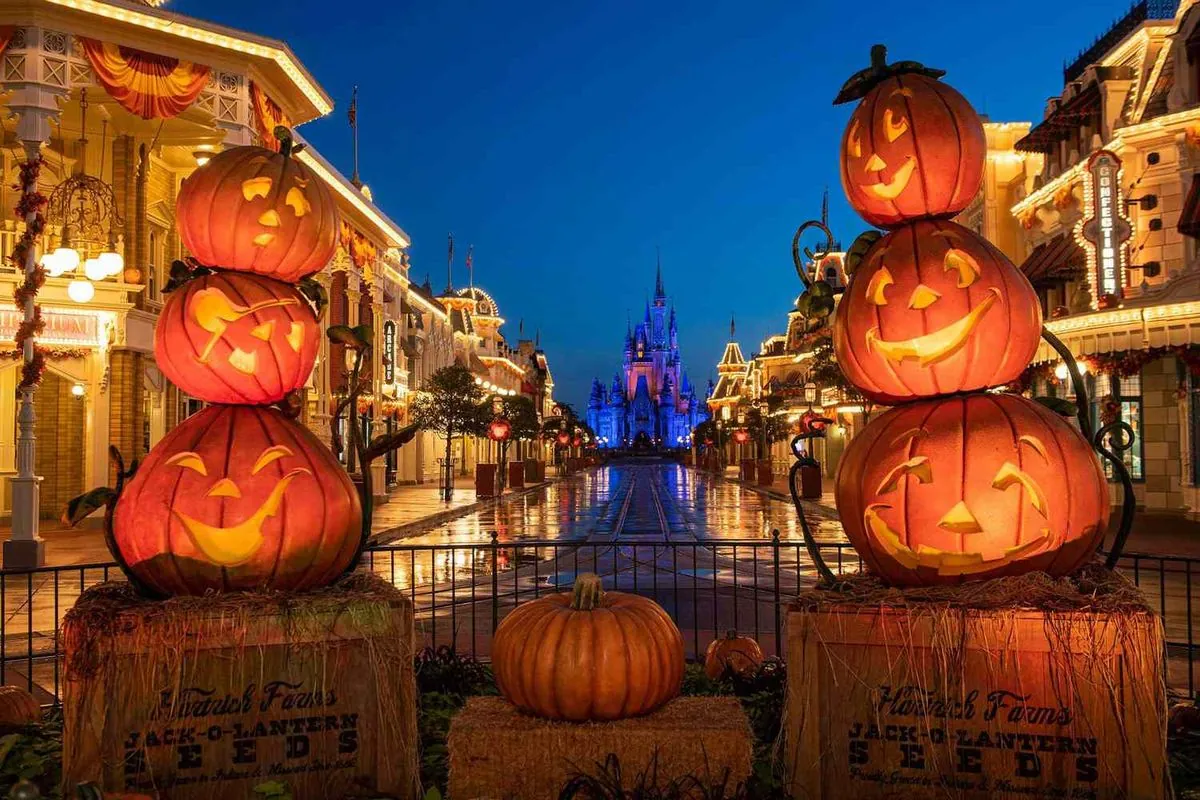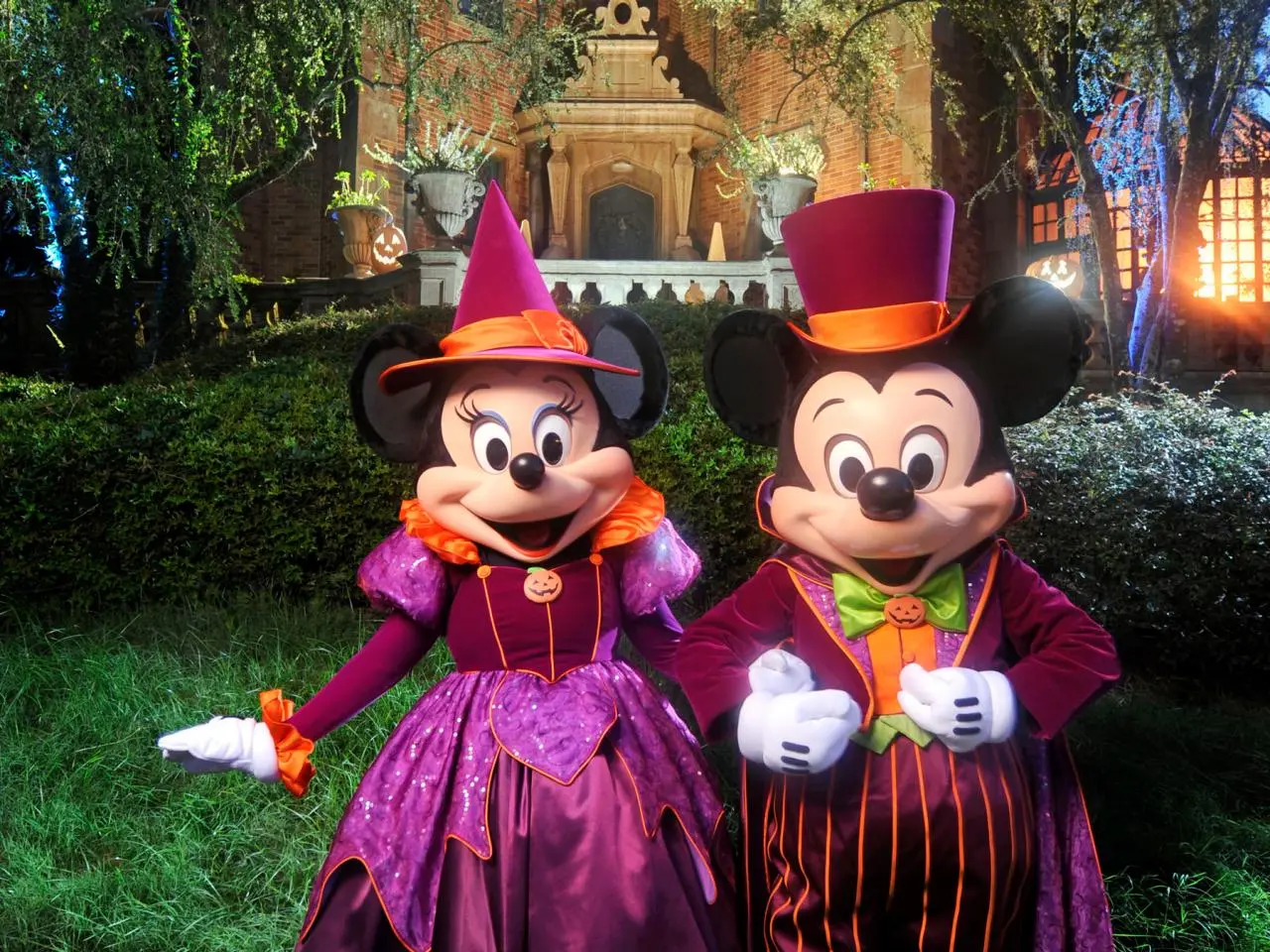US Theme Parks Embrace Early Halloween to Boost Attendance
Major US theme parks are starting Halloween celebrations earlier than ever, capitalizing on the holiday's popularity to counter attendance slumps. New attractions and extended seasons aim to draw more visitors.

Major US theme parks are embracing the Halloween spirit earlier than ever, with attractions launching as early as August. This strategic move aims to capitalize on the growing popularity of spooky-themed entertainment and address recent attendance challenges.
Six Flags, Disney, and Universal Studios are at the forefront of this trend, introducing a variety of Halloween-inspired experiences well before the actual holiday. These offerings include live performances, themed merchandise, and special food and beverage options.
The shift towards early Halloween celebrations comes as theme parks seek to recover from a post-COVID attendance slump. Edithann Ramey, chief marketing officer at Six Flags, reported significant success with horror film-based attractions in 2023, prompting increased investment in such experiences.
"It's become this time of the year that's grown in explosive ways. It's become a billion-dollar industry in the last five years."
This trend aligns with the broader growth of Halloween as a commercial holiday. In fact, Halloween has become the second largest commercial holiday in the US, surpassed only by Christmas. The holiday's popularity extends beyond theme parks, with the largest Halloween parade in the world taking place annually in New York City.
Jakob Wahl, CEO of the International Association of Amusement Parks and Attractions, noted that Halloween events are growing not just in North America, but worldwide. This global appeal is evident in events like the "Let's Get Wicked" celebration at Hong Kong Disneyland, which debuted in 2022 and is returning this year.
Walt Disney's parks started their Halloween season on August 9, 2024, earlier than ever before. The company's "Oogie Boogie Bash," a separately ticketed event, sold out in just 11 days. Tracy Halas, creative director of Disney Live Entertainment, attributed this success to strong guest demand for seasonal experiences.
Six Flags is also expanding its Halloween offerings, leveraging its recent merger with Cedar Fair to create the nation's largest amusement park operator. New experiences include attractions based on popular franchises like "Stranger Things," "Texas Chainsaw Massacre," and "The Conjuring."
Universal Studios has extended its Halloween Horror Nights in Orlando to run from August 30 to November 3, 2024, marking their longest season yet. The park is introducing new attractions based on "Ghostbusters: Frozen Empire" and "A Quiet Place," while also enhancing existing areas like the Wizarding World of Harry Potter with Halloween-themed elements.

The early start to Halloween celebrations at theme parks reflects a broader trend in holiday commercialization. This phenomenon isn't new; trick-or-treating, now a Halloween staple, only became popular in the United States in the 1930s. Similarly, the first Halloween-themed postage stamps were issued by the US Postal Service as recently as 2001, indicating the holiday's growing cultural significance.
As theme parks continue to innovate and expand their Halloween offerings, they tap into a rich history of spooky traditions. From the ancient Celtic festival of Samhain to modern-day horror film franchises, Halloween has evolved into a multi-faceted celebration that appeals to a wide range of audiences. This diversity allows theme parks to create varied experiences that cater to different age groups and interests, from family-friendly events to intense horror attractions.
The success of these early Halloween celebrations demonstrates the enduring appeal of the holiday and its potential to drive theme park attendance. As the industry continues to adapt to changing consumer preferences and economic challenges, Halloween-themed events are likely to remain a key strategy for attracting visitors and boosting revenue.


































